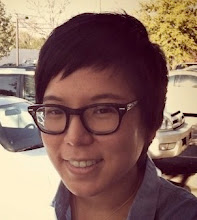I've only heard parts of both sides of this raging debate from friends who are parents. A small portion of parents (who are most likely really into parenting) believe that vaccinations cause autism or brain injury, while everyone else, including most scientists and doctors, believe that vaccines are a useful treatment to prevent life-threatening diseases. Wired just published an article on the growing number of children who are not vaccinated, and the effects and motivations of that move. I highly recommend reading it and getting informed. It discusses how "well-intentioned" parents are digging up misinformation online that is anti-vaccine, that diseases that used to kill children before vaccines were invented are now popping up again and endangering others. That correlation does not imply causation (apparently our science education in the US really failed), that people who are anti-vaccine are not experts, nor do they possess any sort of scientific credibility. Scare tactics work amazingly well, ya'll. B commented that it really kills him that people would listen to Jenny McCarthy, who has become quite the anti-vaccine activist, rather than actual doctors and scientists. In fact, here is a direct quote from the homepage of her autism site: "Twenty five year old Desiree Jennings received her flu shot on August 23, 2009. Over the next few weeks, she lost the ability to walk and to talk normally. Whenever she eats, her body convulses, and she often blacks out." Re: what I said about correlation and causation.
Now, I for one am really skeptical about health claims these days. There is just way too much insidious propaganda disguised as facts on the internet. You have to know how to check the facts, otherwise you're sorta outta luck. This really, really frustrates me, as someone who used to have the "luxury" of believing everything she heard. Now I know better. I was tempted to disregard the whole debate and just accept that no one would really know the answer until decades later, with hindsight and more research. But I think in this case, the research is pretty clear. There is no proof that vaccines cause autism. Scary personal accounts are extremely effective as a persuasive technique. Vaccines help prevent people from dying from certain diseases, and have done so for many decades. There is a small risk that giving your child a vaccine will have adverse effects. But isn't there a risk in doing anything? B astutely noted that way more people die in car accidents and nobody advocates ending the practice of driving. Why? Because the benefits outweigh the costs. And I believe that's how it is with vaccines too.
NPR's This American Life featured a story on a measles outbreak in San Diego last year. A boy traveled to Europe with his parents, where he caught the disease, and then infected some of the passengers on the plane back. One of which included a ten-month old baby, who was unvaccinated because normally vaccines are administered at age one. The mother stated: "Yes, people have every right not to vaccinate their children. But they have to live on an island, their own little infectious disease island." A sad example of how one individual's actions can adversely affect the whole group.
Another excerpt I found illuminating from the Wired article:
The rejection of hard-won knowledge is by no means a new phenomenon. In 1905, French mathematician and scientist Henri Poincaré said that the willingness to embrace pseudo-science flourished because people “know how cruel the truth often is, and we wonder whether illusion is not more consoling.” Decades later, the astronomer Carl Sagan reached a similar conclusion: Science loses ground to pseudo-science because the latter seems to offer more comfort. “A great many of these belief systems address real human needs that are not being met by our society,” Sagan wrote of certain Americans’ embrace of reincarnation, channeling, and extraterrestrials. “There are unsatisfied medical needs, spiritual needs, and needs for communion with the rest of the human community.”
A Fully Loaded Potato Salad for Dinner
4 hours ago



No comments:
Post a Comment